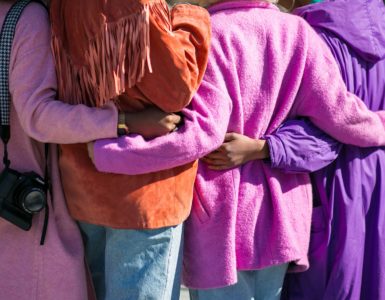A state well known for the Myrtle Beach, state parks, golf courses, family-friendly attractions, and large fishing areas, South Carolina is home to over a variety of 5,210,000 people. Currently, there are hundreds of children just waiting to be adopted, and in this article, I’ll go over the 6 top things to think about before adopting a child in SC.
1. Meeting the South Carolina Adoption Requirements
- When looking into adopting a child from South Carolina, it’s key that you’re aware of the adoption requirements.
- Any resident of South Carolina can adopt a child.
- Marital status isn’t a big issue. You can be married, divorced, or single. If you’re married, however, both you and your spouse must consent to the adoption.
- Same-sex couples are welcome to adopt.
- If you aren’t a resident of South Carolina, you can still adopt if you’re related to the child, if the child was in foster care for 6 months or longer, or if the child has special needs.
- You can have other children, or be a first time parent through adoption.
- You’ll have to prove that you’re financially stable to provide for the child, emotionally stable to nurture the child, and give the love they desperately need.
Read this great article to have a more understanding about adoption requirements.
2. Figure Out What Type Of Adoption Fits Best For You And Your Family
There are different types of adoption that are allowed in South Carolina, and it isn’t always one size fits all. It’s important to know the different types of adoption permitted in South Carolina to see why they differ. To figure out what type of adoption will work best for you and your family, let’s go over what each adoption is.
Domestic Adoption: A domestic adoption is an adoption that happens in the United States. If you’re adopting a child in SC, and you also live in the same state, this is called an intrastate adoption. (Read this article on domestic adoption.)
International Adoption: An international adoption is a child adoption that happens outside of the United States. (Read this article about the 11 things to know about international adoption.)
Agency Adoption: An adoption agency helps both birth parents and adoptive parents. There’s services for birth parents and if you’re looking for agencies in South Carolina, they’ll help match you with a child waiting to be adopted. (Read more about adoption agencies here.)
Independent Adoption: An independent adoption is an adoption where you’ll go to find birth parents that are looking to place their child up for adoption, or they can find you through advertising or word of mouth. You can have help with this with the aid of an adoption attorney, an adoption facilitator, or with state assistance. (Read the article about what independent-adoption is.)
Interstate Adoption: An interstate adoption is where the child you’re wanting to adopt is from a state outside of your state, in this case, South Carolina. (Read this article on interstate adoption.)
Open Adoption: An open adoption is a type of adoption that allows birth parent communication, child updates, and visits after the adoption has taken place. You can discuss the open adoption terms with the birth parents and it’s a very beneficial choice for everyone in the adoption triad. (Read this article about open adoption.)
Closed Adoption: A closed adoption is an adoption that doesn’t involve contact or visits after the adoption. In most cases, you might not even meet the birth parents during the adoption process. (Read this article about closed adoption.)
To learn much more about each adoption, check out this great article, types of adoption.
3. Talk With Family and Close Friends About Wanting To Adopt
If you have other family members of your household, set a time to sit and have a heart to heart conversation about wanting to adopt a child. Don’t take offense if your family members are hesitant at first to welcome another child into their home. It’s significant that you’re open to talking about their feelings about the adoption and assure them that your love for them won’t ever change.
If you have extended family members in South Carolina, be open to talking with them about adopting a child. Perhaps they know of a birth mother who’d like to place their child for adoption, or they have questions about what kind of child you’re looking into adopting. For more ways to talk to your friends and family about adopting, read this article about talking adoption with friends and family.
Which brings up the next thing to think hard about.
4. Think About What Kind of Child You’d Like to Adopt
There’s plenty of diverse children waiting to be a part of a family that’ll love them unconditionally. Think about what child you’d like to welcome into your home, and how you’ll learn about their culture and background. Here’s what kinds of children are waiting to be adopted in South Carolina:
Children with Special Needs:
Children with special needs are children with medical, physical, mental, emotional, and developmental delays and issues. It should be known that in the world of adoption, the term special needs children can also fall under different categories.
There are children that have trauma after being in abusive homes. Children that have attachment issues and separation anxiety from being away from their birth parents and even their siblings. Children that have been neglected and are afraid they’ll be abandoned again. With that in mind, do even more research about the child you’re looking to adopt and be open to learning more about their special needs.
Read this article about the 10 things you need to know about special needs adoption to be better prepared to adopt a child with special needs.
Transracial Families:
Transracial adoption is where you adopt a child that’s a different race from you.
As an African American woman who was adopted by Caucasian parents, and having never met my birth parents, I didn’t learn much about my culture, so I know what it’s like to feel like you’re missing a part of who you are. If you’re wholeheartedly considering adopting a transracial child, it’s extremely important to educate yourself, help them to learn about their backgrounds, avoid having a “savior complex“, and love them unconditionally for who they are.
Read this article to understand more about transracial adoption.
Sibling Groups:
It’s very common that there’s sibling groups that are placed for adoption together. Adopting a sibling group is not only beneficial for the siblings to always be together, but also for you for having enough love in your heart to adopt more than one child into your home.
Read up on this article to learn so much more about adopting siblings, and this article about the 5 things you should know about adopting sibling groups.
Older Children:
In South Carolina, adopting an older child means adopting a child who’s no longer an infant. When adopting older children, they might still be dealing with difficult issues that happened before the adoption, and it might take some time for them to get used to you being the loving adoptive parents. Let them know that you love them and if you need help with ways to do that, read how to show adopted children that you love them.
To learn more about older child adoption, check this article out about adopting an older child.
5. Make Sure You Have What You Need At Home For Your Adopted Child
Before you can take your adopted child home to live with you, keep in mind of the necessities the child will need. When you get conducted for a home study, there’s a lot that the adoption social worker will go over to make sure you have space and accommodations when you bring the child to live with you. What all will you need to prepare for and what items does an adopted child need?
- A bed, sheets, blankets, and pillows. The child you’re adopting must have their own bed and adequate space in their bedroom
- Their own dresser or closet space to put their clothing in
- Their own car seat
- Toiletries, like shampoo, toothbrush, toothpaste, towels, washcloths, a brush, a comb, etc.
- Diapers, wipes, and pullups if you’re adopting a child who’s under 2 years old
- Their own age-appropriate books and toys
- Childproofing items if you’re adopting younger children
- Privacy. If you’re adopting a school-aged child, they’ll need to have their own privacy. Most children come from traumatic households and need space to feel calm and to relax
- Food and Drinks
- Night lights
- Love, patience, nurturing, compassion, understanding, empathy, and a caring heart
What to prepare for the home study:
- Make sure to have adequate bedroom space for the child to roam around safely.
- A working telephone.
- Fire extinguishers, carbon monoxide detectors, and working smoke alarms.
- Have a family fire safety plan.
- Working faucets and toilets.
- Putting up medication that’s out of children’s reach.
- Putting and locking up any firearms in the home.
- Cleaning supplies are locked up.
- A fence around the pool if you own a pool.
- Answered questions for the home study interview about your background, home life, relationships, daily routines, family environments, neighborhood, why you’d like to adopt, etc.
- Expect to have 2 face to face interviews, and for the other members of your household to have separate face to face interviews.
- Post-placement assessments.
- Have the birth certificates, marriage licenses, or divorce decrees.
- If you have a septic system, you’ll need a public health inspection.
- Provide health history.
- References usually asked to have two or three references that can speak well about the kind of person that you are.
- Criminal background checks for those in your home over the age of 10.
- Child abuse clearances.
- Proof of steady income and employment history.
To learn all of the details about a home study, check out this article about the 10 things you need to know when you’re preparing for a home study.
6. Realize Just Why You’re Looking Into Adopting a Child in SC
Remember the savior complex mentioned above? While you mean well, saying or even thinking negative statements like “I gave my adopted child a better life than what they’re birth parents ever could.”can be hurtful to your adopted child. Yes, you’re going to give your adopted child a good life, but feeling like it’s your duty to save a child through adoption and then bragging about it can be upsetting to everyone involved in the adoption. (Read 10 questions to ask yourself to see if you have a savior complex).
Here are some other questions to ask yourself and think upon just why you’d like to adopt a child:
- Am I happy with my own life?
- Can I be patient and understanding of my adopted child’s feelings, wants, and needs?
- Are the family members living in my household truly okay with me adopting a child?
- Will I have the financial stability to support the child?
- Will I have the emotional stability to love another child?
- Will I be open to learning more about my child’s background life?
- Will I be okay if my adopted child wanted to form a bond with their birth parents?
- Is my support system always going to be there for me and my adopted child when things get hard? Am I flexible to handle all the changes that come with adopting a child?
- Do I live in a great family community in South Carolina?
- Will I vow to love my adopted child unconditionally?
For more questions to ask yourself, read this article about 5 unique questions to ask yourself before adopting.
Being able and qualified to adopt a child in South Carolina will no doubt be a rollercoaster of an experience. By following these 6 things, and reading the handy articles linked, you’ll be confident that you’re ready to adopt a child. Read this article for a complete detailed South Carolina adoption guide, and this article, adoption in SC, which both articles tell you just about everything you need to know about adoption in South Carolina.




